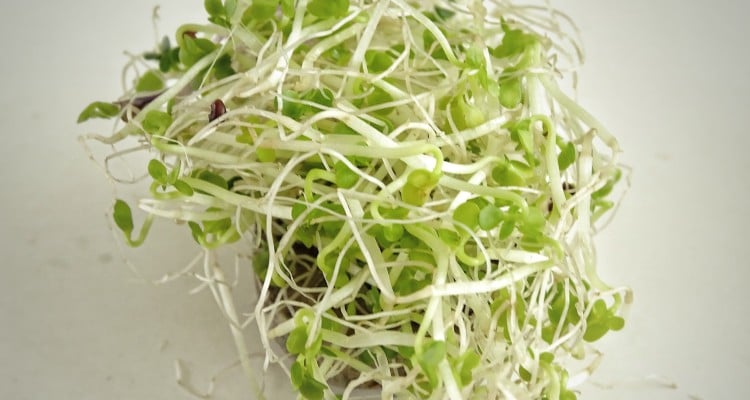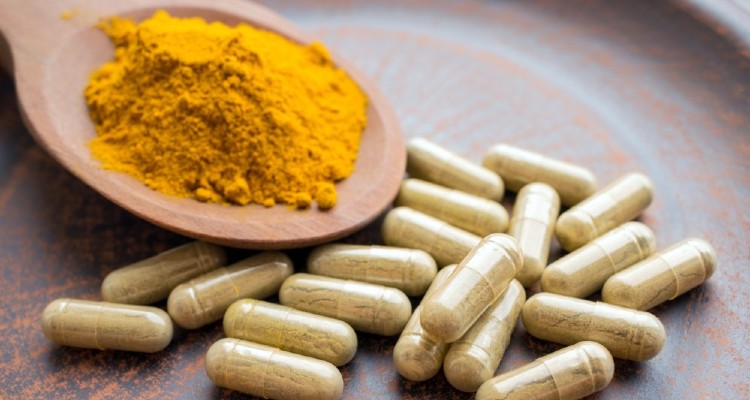Among the many plant-derived supplements available, turmeric has led the charge for years. However, broccoli sprout extract is starting to turn heads as well.
Rigorous clinical trials for both have escalated over the past decade, especially in the area of salubrious immune regulation. Just a few years ago, turmeric use was spearheaded by a surge of clinical trials that lauded its benefits across a wide range of health issues, from regulating the inflammatory response to supporting joint health.*
More studies are coming to light showcasing the broad scope of beneficial uses for broccoli sprout extract. Many of the findings are breakthroughs specific to broccoli sprout extract, but some indicate very similar health benefits to those found in turmeric. While broccoli sprout extract is being studied extensively for its effects on altering the pathways leading to free radical damage, numerous findings overlap with those performed on turmeric. These include promoting healthy immune function and regulating the body’s response to inflammation.*
Practitioners and consumers alike may discover similar benefits to each. Thus, they may wonder if broccoli sprout extract will surpass or replace the health benefits of turmeric.* Understanding a bit more about the essential phytochemistry of broccoli sprout extract can reveal ways in which it is similar to turmeric, and also ways it offers unique health benefits.*
Phytochemistry: How to Peer Inside the Plant
With modern-day laboratory analysis, it is now possible to examine and identify the phytochemical structure of plants, herbs, and foods.
Phytochemicals are natural bioactive compounds that promote a healthy cellular response. In particular, the decomposition products of secondary metabolites such as glucosinolates, isothiocyanates, and other antioxidants may have a wide variety of health-promoting benefits.
Sourcing supplements from the whole plant is a trend, due to clinical studies indicating plant-based supplements offer greater bioavailability to people.[1]
Two prime examples of broad-base phytochemicals are curcumin, and a relative newcomer, sulforaphane.
Curcuminoids, or curcumin, is the phytochemical found in turmeric, a plant known for its efficacy in promoting a healthy inflammatory response.* Turmeric, a yellow-pigmented rhizome – and member of the ginger family – has been used for centuries for gastrointestinal and circulatory system support.*
The nutrient compound sulforaphane, found in broccoli sprout extract, may attain similar accolades for its benefits in protecting DNA by diverting enzymatic pathways related to cellular oxidation.

Sulforaphane, the Key Ingredient in Broccoli Sprouts
Broccoli is one of those vegetables that demands its own spotlight.
In the past decade, phytochemicals and their antioxidant properties have become hot topics for research. Of particular interest are the isothiocyanates, particularly sulforaphane, for its ability to regulate pro-inflammatory enzymes and induce antioxidant enzymes.* Sulforaphane is found in most cruciferous vegetables such as cabbage, kale, broccoli, and cauliflower. [2]
The pioneering work of one researcher, Paul Talalay, led to further studies on the health benefits of sulforaphane. One such study showed that the biogenic precursor to sulforaphane, glucoraphanin, was found in abundance in broccoli sprouts. In fact, broccoli sprouts contain 15 times the amount of sulforaphane than found in broccoli stalks and florets.[3]
Talalay’s research eventually led to the formation of the Center for Chemoprotection at Johns Hopkins University, where numerous studies on sulforaphane and its many health-promoting actions were conducted. Sulforaphane has been investigated extensively for its ability to alter specific pathways and offer protection to many systems of the body, including gastrointestinal, respiratory, immune, and cognitive.*
Sulforaphane inhibits Nuclear Factor Kappa Beta (NFKB), a molecule that is activated as people age.* This molecule is triggered when toxins, radiation, and other stressors invade cells and push the innate inflammatory response to high levels for sustained periods. The focus of current research is on finding food and other natural sources to promote a healthy inflammatory response, and sulforaphane is at the top of the list.
Some applications of sulforaphane include:
- Protecting the gastrointestinal system and maintaining a healthy gut lining.*
- Promoting the reduction of toxins and free-radicals.*
- Supporting healthy blood vessel formation.*
- Boosting a healthy immune system response through enzymatic pathways.*
Liposomal Broccoli Sprout Extract
Broccophane™ is a standardized extract that comes in a liposomal spray, allowing for metered dosing of sulforaphane, optimal delivery, and best absorption.* Cruciferous vegetables like kale, cabbage, broccoli, chard, cauliflower all contain sulforaphane. However, the breakdown and metabolism of sulforaphane are not always optimal when the end-product is not readily absorbed. A liposomal delivery spray, on the other hand, allows for a highly concentrated form of sulforaphane and improved bioavailability. Liposomal delivery also protects against nutrient degradation that may occur within the gastrointestinal tract.
Turmeric and broccoli sprouts share many similarities. Both play a role in promoting a healthy inflammatory response and confer systemic health benefits by modulating cellular response to toxins.* Both are excellent free-radical fighters and have a great effect on dampening inflammatory pathways.*
Because of these wide-spread benefits, broccoli sprout extract is growing in popularity. Whether or not people will consider it “the new turmeric” remains to be seen, but as medical professionals and consumers pay more attention to plant-based nutrients for supplementation, sulforaphane will be an attractive option for maintaining foundational health.*

*These statements have not been evaluated by the Food and Drug Administration. This product is not intended to diagnose, treat, cure, or prevent any disease.
REFERENCES
Hendricks, M.(n.d.) More Reasons to Eat Those Vegetables. https://www.hopkinsmedicine.org/institute_basic_biomedical_sciences/news_events/articles_and_stories/cancer_disease/2010_08_eat_veggies.html
Zhang Y., Talalay P., Cho C.G., Posner G.H. A major inducer of anticarcinogenic protective enzymes from broccoli: Isolation and elucidation of structure. Proc. Natl. Acad. Sci. USA. 1992;89:2399–2403. doi: 10.1073/pnas.89.6.2399
[1] Benzie, I. & Wachtel-Galor, S, editors (2011). Herbal medicine: Biomolecular and clinical aspects. 2nd edition. CRC Press: Boca Raton, FL.
[2] Higdon, J., Drake, V. & Delage, B. (2017). Isothiocyanates. Retrieved from https://lpi.oregonstate.edu/mic/dietary-factors/phytochemicals/isothiocyanates
[3] Fahey J.W., Zhang Y., Talalay P. Broccoli sprouts: An exceptionally rich source of inducers of enzymes that protect against chemical carcinogens. Proc. Natl. Acad. Sci. USA. 1997;94:10367–10372. doi: 10.1073/pnas.94.19.10367.











.jpg)

-2.png)




